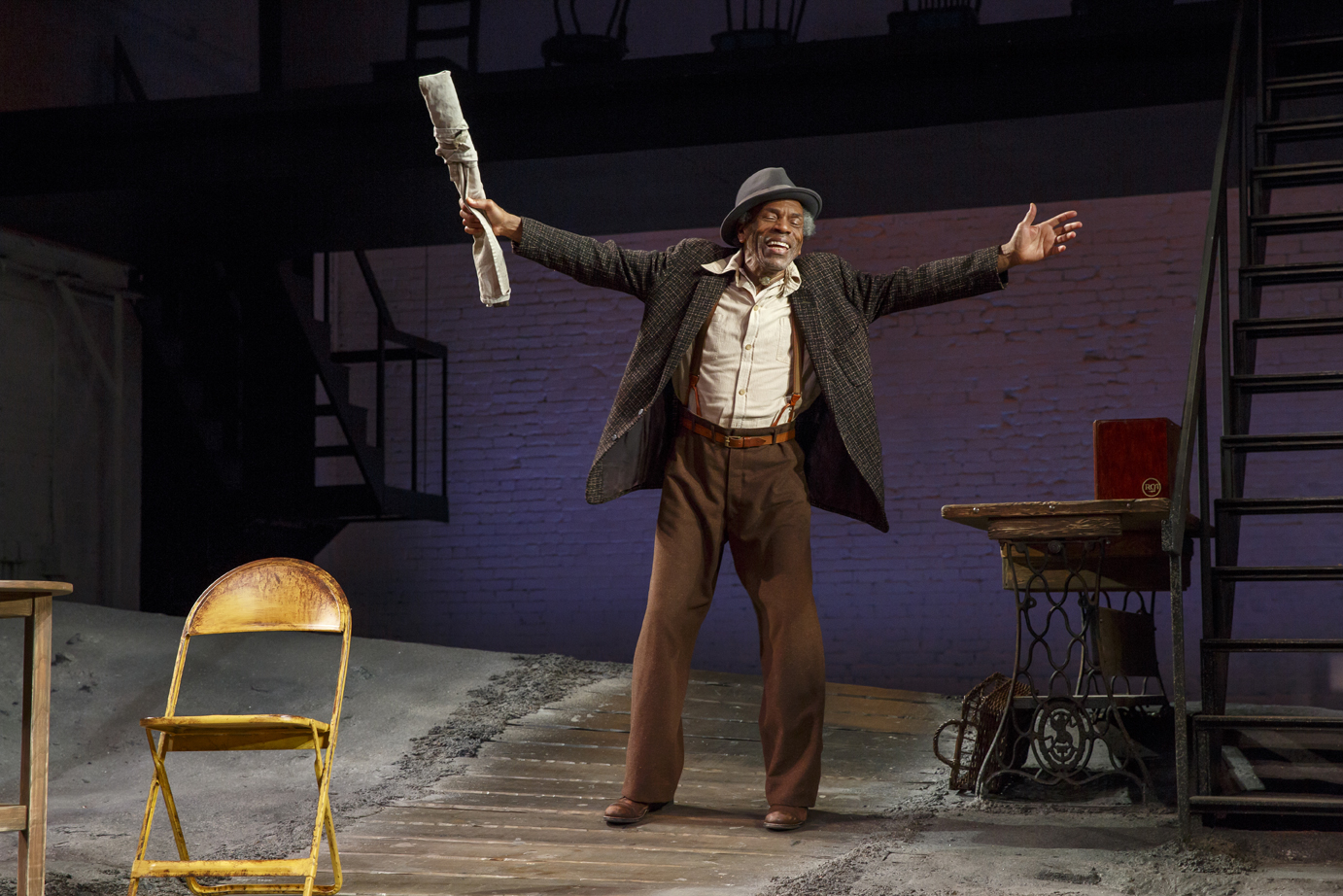
Courtesy Yale Repertory Theatre
As the lights hit the Yale Repertory Theatre’s stage on Monday, audience members were surprised to find a woman belting high notes about delicious cabbages and sexual intercourse.
Playwright August Wilson’s “Seven Guitars,” directed by Timothy Douglas, revolves around the life of Floyd “Schoolboy” Barton, a local blues musician with aspirations to stardom, and six other working-class African-Americans living in 1948 Pittsburgh. Themes of the play are wide-ranging, from Black consciousness to religion and exploitation in the music industry.
This is the fifth play in Wilson’s Pittsburgh Cycle, which consists of 10 plays each representing one decade of the 20th century. Other acclaimed plays in the cycle include “Fences,” winner of the 1987 Tony Award for Best Play, and “The Piano Lesson,” winner of the 1990 Pulitzer Prize.
“I wanted this production to impact its audience in a new way, while also acknowledging the play’s historical setting,” Douglas said. “Six of the 10 American Century Cycle plays premiered at Yale Rep, though this is the first time ‘Seven Guitars’ is being done here.”
“Seven Guitars” is set entirely in the backyard of an apartment rented out by Vera, Floyd’s love interest whom he tries to win over throughout the course of the play. A set of stairs on the left side of the stage lead to Vera’s landlady’s apartment, depicted onstage as a platform with seven different chairs on it. Characters enter and exit from the stairs throughout the play. The right side of the play features a workbench on which Hedley, an elderly tenant who is extremely critical of white society, kills chickens. Other characters include Lloyd’s friends Canewell and Red, and Louise’s niece, Ruby, who arrives at Louise’s apartment in the middle of the play.
Although most of the play is staged in a traditional style, both the beginning and ending scenes of the play features the actors speaking directly to the audience instead of to each other. This is related to the play’s chronology, as the first and last scenes take place after the death of Floyd, while the rest of the play depicts the events leading up to his death. Lauren Banks DRA ’17, an understudy for the show, noted that the abstraction allowed for a “focus on words.”
“For this production, given our times, I didn’t want to see building facades,” Douglas said. “I was more interested in pushing past the surface level of things, to lift up the language and drive into what August’s words contain.”
Costumes and props are period-specific and include a radio the characters use to listen to championship boxer Joe Louis fight as well as a 1940’s-era acoustic guitar. Musical elements are prominent in the show, such as singing, live harmonica playing and drumming. Douglas said the play was inspired by the blues, not just within the music, but the set design as well.
Audience response has been positive, with many commenting on the effectiveness of the production’s staging and lighting. Mike Rodriguez ’20, an audience member, said the play was “well-done,” and praised actress Stephanie Berry’s portrayal of Louise’s stubbornness, adding that the use of lighting was simple and effective. The play made heavy use of silhouettes, and characters who exited up the left-side stairs stood in place behind a thin sheet allowing their shadow to be visible, representing their continued presence over the show’s events. Colored lighting was also used, as the stage lighting immediately shifted to a bright red after Floyd’s death. Sarah Thompson DRA ’18, the show’s concierge, noted that audience members responded positively to the “abstracted” beginning and end.
Wayne Schrengohst, who saw the Monday preview of “Seven Guitars,” praised the actors’ abilities to create a riveting and believable performance.
“It’s good to have something so tangible and real … to get down to the struggle,” Schrengohst said.
Douglas said the election impacted the show’s production, unlocking new meanings and bringing fresh relevancy. He also praised the ability of Wilson’s script to get to the center of common human challenges. If performed authentically, such themes in a play can have a really profound healing effect, he said.
The last performance of “Seven Guitars” is Dec. 17.a







